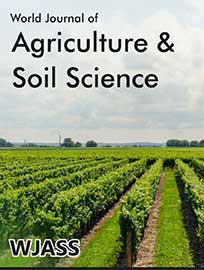 Review Article
Review Article
Reassessing the impact of Food, Mating and Ageing on Callosobruchus maculatus’ Fecundity, Oviposition and Longevity
Beck Arebamen Akhiwu*
Department of Plant Pathology, Nematology and Entomology, University of Idaho, Moscow, Idaho, USA
Beck Arebamen Akhiwu, Department of Plant Pathology, Nematology and Entomology, University of Idaho, Moscow, 132 Falls Avenue West, Apt C302, Twin Fall, Idaho, USA.
Received Date: August 07, 2020; Published Date: August 17, 2020
Abstract
Callosobruchus maculatus, commonly known as Bean weevil, is an agricultural insect pest of both field and storage crop in Africa, Asia and most parts of the world. They cause serious economic damage to cowpea seed and other leguminous crops throughout the tropical and subtropical world. Understanding the biology of C. maculatus is very important in the control of this insect pest. The aim of the study was to investigate the effects of feeding, mating, and aging on the fecundity and lifespan of the insect. C. maculatus was subjected to different feeding modes and mating. Daily weight was taken and recorded. The ability of ageing males to fertilize virgin females was investigated. This research is the first to investigate the effects of nutrients and ageing on the longevity and fecundity of C. maculatus. Data was collected and analyzed with tukey test at 5% significant difference. The results show that nutrient plays a vital role in longevity and fecundity of C. maculatus, and male C. maculatus would live longer in the absence of female. Furthermore, this study shows that weight loss and decline in reproductive ability (ageing males’ ability to fertilize virgin females declines as they grow older) are some of the attributes of ageing in C. maculatus.
Keywords: Callosobruchus maculatus ; Longevity; Fecundity; Virgin; Ageing; Mating
-
Beck Arebamen Akhiwu. Reassessing the impact of Food, Mating and Ageing on Callosobruchus maculatus’ Fecundity, Oviposition and Longevity. World J Agri & Soil Sci. 5(4): 2020. WJASS.MS.ID.000618.
-

This work is licensed under a Creative Commons Attribution-NonCommercial 4.0 International License.






